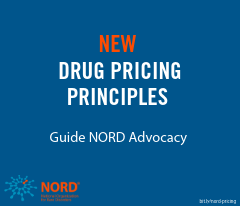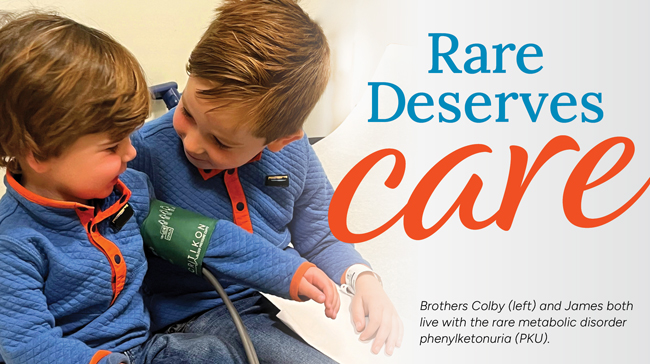Washington, DC, May 7, 2019 – The National Organization for Rare Disorders (NORD)Ⓡ, the leading independent nonprofit organization representing the 25-30 million Americans living with rare diseases, has announced its development of key drug pricing principles, created with the needs of the rare disease community in mind.
People living with rare diseases must be able to afford the therapies that come to the market. The high cost of prescription drugs has a direct impact on the ability of patients to access lifesaving care. The small patient populations and medical complexity associated with rare diseases can lead to costly therapies, but it is vital that these therapies remain affordable and, therefore, accessible to rare disease patients. Furthermore, these therapies must remain affordable so that the sustainability of the healthcare system as a whole is preserved.
As all levels of government and a variety of stakeholders look for legislative and regulatory tools to find ways to ensure that medicines are affordable, NORD has compiled the following principles to help guide NORD’s engagement with these issues in a deliberate and transparent manner:
- The policy must maintain FDA’s standards of safe and effective therapies. Rare disease patients in the United States rely on the quality and safety of FDA-approved medicines. Any policy to lower the cost of therapies must not lower the safety and effectiveness of the medicines rare disease patients need.
- The policy must not raise out-of-pocket costs for rare disease patients. Policies to lower the cost of prescription drugs must not inadvertently raise patients’ out-of-pocket costs.
- The policy must not decrease patients’ coverage of necessary therapies prescribed by their provider. Some policies may negatively impact insurance coverage for rare disease treatments, making these treatments unaffordable and, therefore, inaccessible for patients with rare diseases. Patients should be able to access the therapy that they and their physician believe is right for them.
- The policy must not place an undue burden on innovation of new therapies. Rare disease patients rely upon and, in many cases, their lives depend on continued innovation by the pharmaceutical industry. However, innovation is meaningless to patients if they cannot afford the therapies that are ultimately developed. Efforts to improve affordability and lower costs should be balanced with the need to sustain innovation.
- The policy must be supported by reliable data. Policy interventions must be well-researched and supported by empirical evidence.
From its inception, NORD has advocated for the development of safe and effective rare disease therapies so that people living with rare diseases can benefit from novel therapeutic development just as patients with common diseases do. NORD supports the 1983 Orphan Drug Act, which is one way to further this goal. In the three and a half decades following the law’s enactment, over 770 therapies indicated to treat a rare disease have come to market, whereas prior to the ODA there were only 34.
NORD will continue its work to educate all stakeholders on the successes and importance of the Orphan Drug Act. These efforts will include the distribution of robust data collected from trustworthy sources, such as its recently commissioned IQVIA reports, with the goal of ensuring that lawmakers are making decisions pertaining to rare diseases and orphan therapies based upon evidence and facts.




